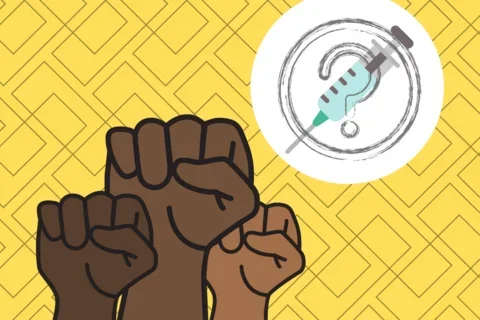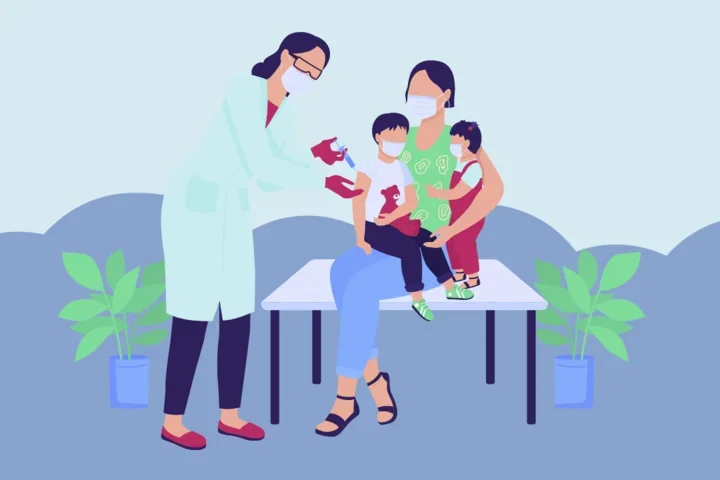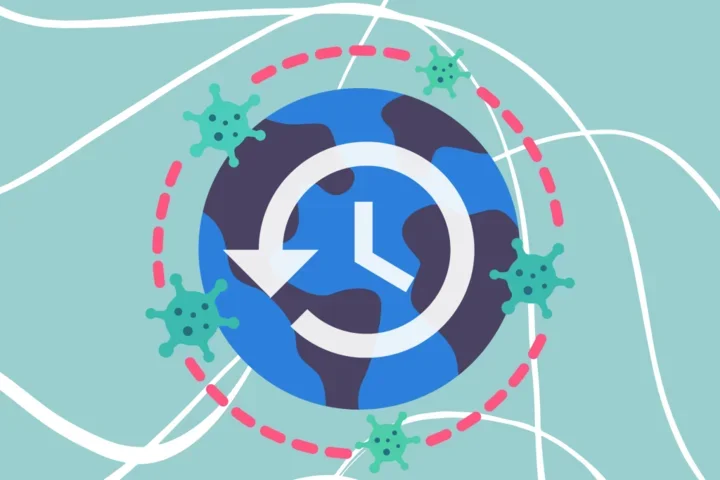Blog Post #6: How Police Violence has Contributed to Vaccine Hesitancy in the Black Community

How Police Violence has Contributed to Vaccine Hesitancy in the Black Community
By Asal Bastani
Co-authored by Dr. Shanice Neecey Hudson
2020 was marked by the global COVID-19 pandemic along with the height of the Black Lives Matter movement that was sparked by the unjust death of George Floyd. However, police violence in the Black community is not novel, but has historically plagued many previous generations. The origins of U.S police can be traced to slave patrol, dating back to 1704, who were government-backed coalitions of armed white men who enforced obedience in slaves as the slave population boomed.
The racist origins of policing have never properly been addressed through affirmative action or any type of reparations to repent for the collective harm that has scarred the socioeconomic status of Black populations. As public health measures rely on the trusting relationship of the government and its constituents, the COVID-19 vaccine roll out is faced with many skeptics, notably in Black communities. Racially-swayed vaccine hesitancy can be linked to a loss of trust in government institutions, particularly law enforcement.
The highly publicized police inflicted deaths of George Floyd and Breonna Taylor have spotlighted high resistance among government officials to condemn guilty police officers – and thus degrading and marginalizing Black lives. Since 2015, there have been more than 8,000 police-involved fatalities, in which Black people make up the highest percentage of deaths from any race, a staggering 28%. Even more shockingly, less than five officers (including Derek Chauvin) in the US have been convicted of murder since 2005. Moreover, a recent study by the Police Score Card Project identified that Black men are nearly 3x as likely to be killed by police violence in their lifetime.
The shocking statistics of police-inflicted deaths provokes distrust in government institutions among Black communities. A 2018 study identified that African Americans were notably less trusting of their government than whites and were more likely to doubt government motives. As such, with a government-backed vaccine, it is expected that people who have been continuously mistreated by institutional systems throughout history are skeptical of the legitimacy and efficacy of the COVID-19 vaccine. A study by Tufts University shows that Black people are among the most vaccine hesitant racial population, with 18% saying they are very unlikely to vaccinate and have the lowest vaccination rate of only 51% compared to the 77% vaccination rate of other racial populations. The low vaccination rates, however, can also be linked to evidence that Black populations do not have sufficient access to vaccination sites.
The trust of constituents is necessary in gaining confidence in public health decisions. A government guarantees law enforcement officers impunity against unthinkable crimes, including killing innocent Black victims, diminishes the confidence of Black communities in their government.
The international outrage around George Floyd’s murder illustrates the instituional alignment needed to sanction crimes against the Black community. The devaluement of Black life in the eyes of the government was made painfully and publicly clear last summer, but it has been a truth Black communities have grappling with for centuries in American history. If such crimes can persist in the modern community with monumentous empirical evidence of the marginalization of Black life, it is no surprise that Black people do not have trust in the US government to advocate for their health with the life-saving COVID-19 vaccine. The vaccine roll out is only the latest, and seemingly not the last, example of how the history and current reality of violence have degraded the health and quality of civic life of Black constituents.
About the authors:
Asal Bastani
University of California, Los Angeles | Physiology B.S. with a minor in Professional Writing
Asal is a third year student who aspires to become a physician-advocate in the future to help create equitable healthcare for marginalized communities. She is currently involved in researching the medical examiner-coroner system in relation to keeping police officers accountable for their actions in cases of police-related fatalities. She is also a Peer Learning Facilitator for UCLA’s Academic Advancement Program in which she mentors and tutors students from underrepresented backgrounds to combat systemic disparities in postsecondary education.
Dr. Shanice Neecey Hudson
Hood Medicine Initiative
Dr. Neecey Hudson is the Chair & Science Director for Hood Medicine. She completed a BS in Biology at MIT and an interdisciplinary PhD in Computational Biology at the University of Louisville. She currently works as a research scientist at Elanco. She co-hosts the Hood Med Chats live podcast and directs scientific communications & media development as well as health disparities research activities for the org.


